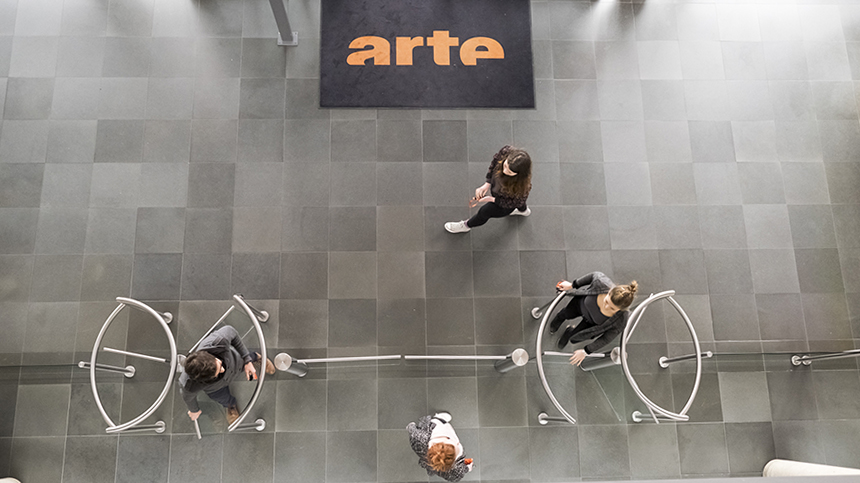ARTE’s commitment to professional equality is reflected both within the company and in its programming. It involves:
An active policy to promote professional equality:
This policy is subject to different legal contexts, with German law applying to ARTE Deutschland, while French law applies to both ARTE GEIE and ARTE France.
Policy action focuses in particular on pay, appointments and promotions. The channel takes a proactive approach to promoting women in the company. As part of the professional equality agreements concluded with the unions, and in addition to the aim of approaching parity for top executives, ARTE’s commitments cover areas such as access to long-term training for women, as well as online or distance learning, and rolling out teleworking to provide a better work / family life balance.
In the field of pay, in order to eliminate unjustified gaps and apply the principle of “equal pay for equal work”, French regulations provide that every year companies with more than 50 employees must undertake a professional equality assessment based on the Gender Equality Index. The index was at the following level for the year 2025:
Gender Equality Index ARTE GEIE: 94/100
Gender Equality Index ARTE France: 99/100
Publication relating to the Decree of 8 January 2019 implementing the provisions aimed at eliminating the gender pay gap in companies and relating to combating sexual violence and sexist behaviour in the workplace
Combating sexual harassment and sexist behaviour:
ARTE GEIE has teamed up with ARTE France and some 20 public and private media companies to sign a Code of Good Conduct, under the aegis of the “Association For Women In the Media”, to combat sexual harassment and sexist behaviour. Under the Code, ARTE has undertaken:
- To inform all employees about what constitutes sexual harassment and sexist behaviour, and the penalties imposed on those who engage in such behaviour;
- To take action by putting in place listening and assistance arrangements for victims and witnesses of misconduct;
- To share good practice with other media companies that are signatories to the Code.
Setting up frameworks to promote gender equality and the presence of women in broadcast media:
- ARTE France’s Cinema Selection Committee is a joint equal representation committee and is particularly keen to improve the representation of women among our writers and directors.
- ARTE’s Group Project includes the obligation to ensure a better gender balance in terms of the “experts” invited to take part in our programmes and the creatives who devise our programmes.
- The programme of the European online film festival ARTE Kino Festival is based strictly on equal representation and ARTE supports the 50/50×2020 collective’s drive to achieve greater equality and diversity in the film sector in 2020.
- The channel’s flagship daily programmes are mainly presented by women:
- “ARTE Journal”: Rebecca Donauer, Meline Freda, Dorothée Haffner, Annette Gerlach, Nazan Gökdemir, Carolyn Höfchen, Marie Labory, Anja Waltereit and Damien Wanner;
- “28 minutes” on weekdays: Elisabeth Quin (by Renaud Dély at the weekend).
- More generally, the majority of our programmes are anchored by women:
- “Mapping the World”: presented by Émilie Aubry following the death of its iconic presenter Jean-Christophe Victor;
- “Invitation au Voyage“: Linda Lorin;
- “Thema”: Émilie Aubry, Andrea Fies and Thomas Kausch;
- “ARTE Reportage”: Andrea Fies and William Irigoyen

